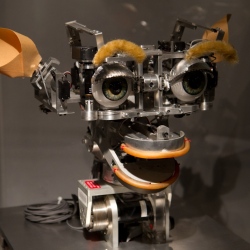
Singularity University is an organisation that some regard almost as a cult, others treat with amusement but which few are prepared to entirely ignore.
That isn’t just because it is home to some of the brightest minds on the planet. Or the fact that it is based at Nasa’s research park in Mountain View and within spitting distance of the Google campus.
What is making people sit up and take notice of SU is the fact that it has identified a range of disruptive technologies – innovations that can disrupt existing markets – that it believes will change the world, from digital manufacturing to biotechnology, from robotics to artificial intelligence.
As well as highlighting the role they will play in future society, SU also has the modest ambition of using them to solve what it calls the "grand global challenges" – poverty, energy, food, education and disease.
If SU has a godlike figure, it is Ray Kurzweil, Google’s chief engineer and the man who has become synonymous with the concept of singularity – the tipping point when artificial intelligence overtakes human brainpower.
He has even put a date on when that will happen so put an entry in your diaries now – "2045 – put feet up and allow robot overlords to take over."
And the bible of SU is Abundance, a book by co-founder Peter Diamandis, which talks a lot about how we will soon have the technological capacity to fulfil the needs of everyone on the planet.
Now SU is spreading its gospel to Europe, hosting its first European summit in Budapest, in the august surroundings of the Liszt Academy.
The phrase you are most likely to hear during the weekend conference is "exponential curve".
This is the idea that technology innovation is no longer a linear progression but an unstoppable mountain of change – with the summit being the seamless integration of the biological and the non-biological.
The joke on campus is that SU is neither a university nor does it teach the singularity.
Instead the organisation, funded by firms including Google, Autodesk and the X Prize Foundation, runs a series of graduate and corporate programs, as well as conferences.
Its ten week summer course is hugely popular but it only takes 80 graduates each year.
